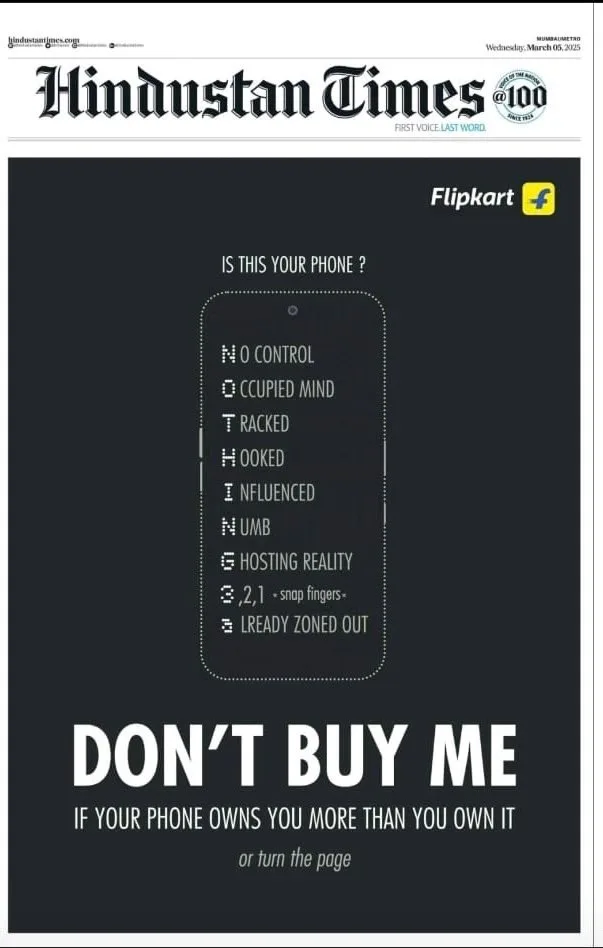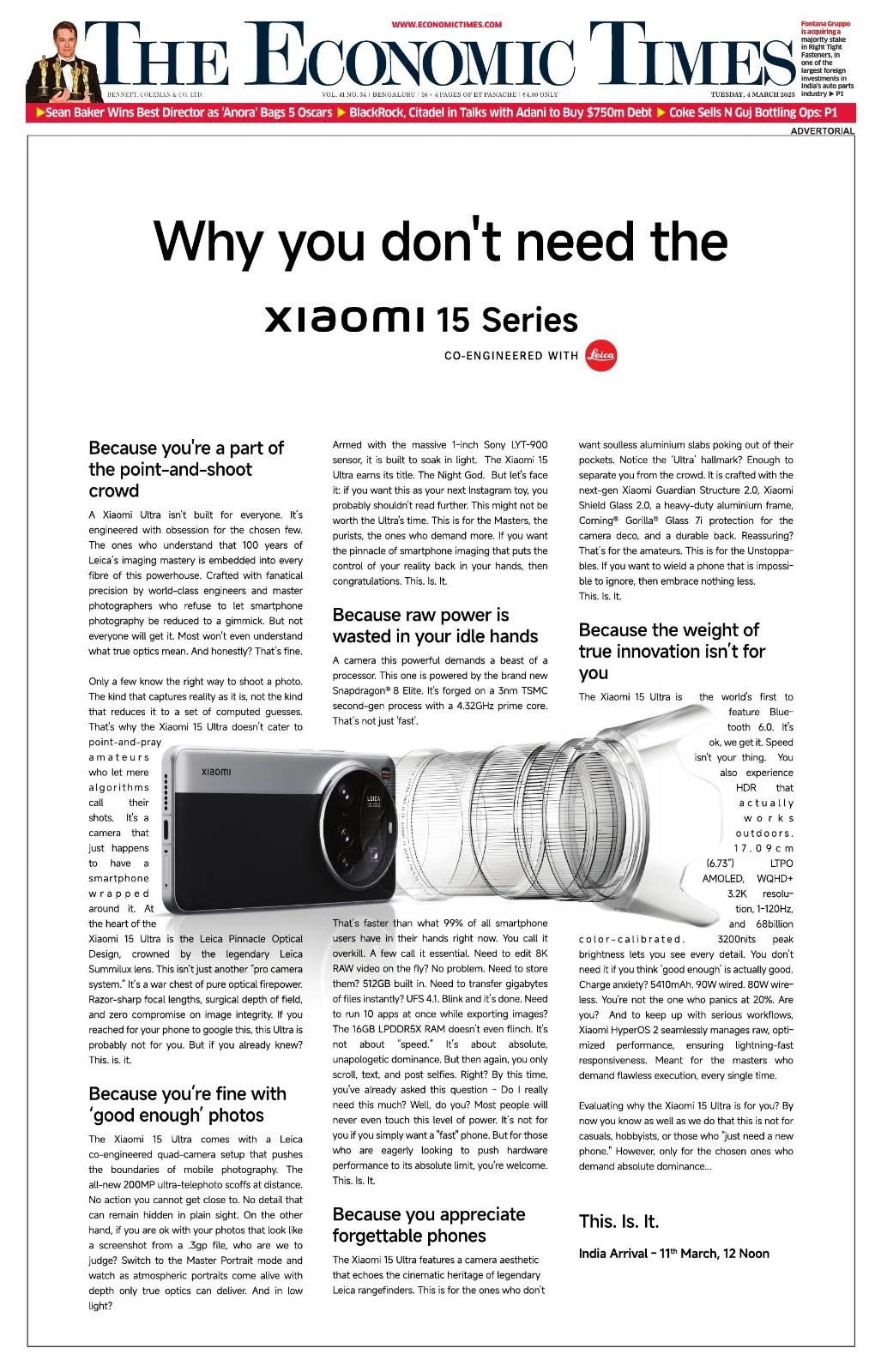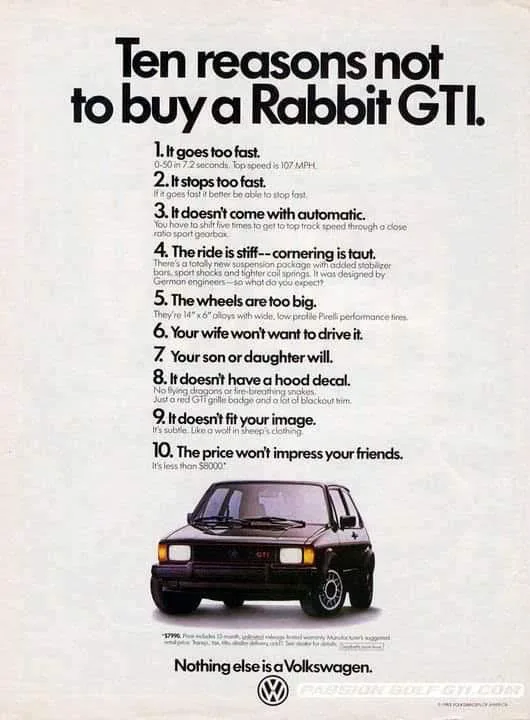THU, MAR 6

NimishAndAkriti

It seems to be the phone marketing fashion these days - telling consumers not to buy your phone. A couple of days ago, Xiaomi splashed an ad across the front page of The Economic Times with the title "Why you don't need the Xiaomi 15 series" with a lot of copy pointing out that most "point and shoot" users would have no use for Xiaomi's latest and greatest camera phone. We had barely recovered from this when Nothing, Carl Pei's new initiative, hit us with a full page ad on the Hindustan Times, where the brand's new phone declared "Don't Buy Me!" stating that those satisfied with their existing (and inferior) phones need not invest the latest Nothing device. Which makes one wonder what the heck is going on and what's with all this "don't buy us" mode adopted by these phone brands?
❤️


Now reverse psychology - the art of making someone do a thing by asking them not to do it - has been a tool that's been used often in advertising, and most famously by Volkswagen when it famously referred to its Beetle as Lemon and even called it Ugly in 1959, Volkswagen again came out with an ad giving users 10 reasons not to buy one of their cars later. The heading of the ads seemed self-critical but the copy gently reminded you of why the product was actually a very good one.


Now, we have no problem with this approach as it is informational in nature. Where we think both Xiaomi and Nothing have gone BADLY wrong is in actually cocking a snook at other products and even the consumer. Let's start with the Xiaomi ad. Instead of really talking about the product, the ad goes off on a tangent, highlighting the perceived shortcomings of other phones and even seemingly making fun of consumers for using and liking "forgettable phones." It made the unfortunate error of defining itself not on its own strengths but on the weaknesses of others. Worse, it used a sneering tone that seemed to indicate that the phone was too good for consumers, who were happy with other phones. It really became a classic case of "you need our product to prove you are good," which is a very brave but risky positioning, and unfortunately totally out of sync with the brand's generally friendly and grounded messaging.


Then there is the Nothing Phone ad campaign. Once again, a front age ad, which basically poked fun at almost every other phone out there, and by implication, their users. Once again, the idea was perhaps a good one, but once again, the attempt was to define oneself in terms of the competition and by criticising a large part of one's consumer base in the process. The idea that a large number of consumers were using phones that were "tracked, hooked, influencer, numb...:" and a number of other things seemed a little disrespectful of those who had purchased them.


We do not know what has triggered the current enthusiasm for criticising consumers, directly or implicitly. We do not even know if the strategy will work - the sales of the phones will tell us that. However, we are keeping an eye on this style of advertising, and whether other phones follow this trend. If they do, we hope they do it with humour, and well, some respect for the consumer. It would be sad to see those qualities go out of advertising.

